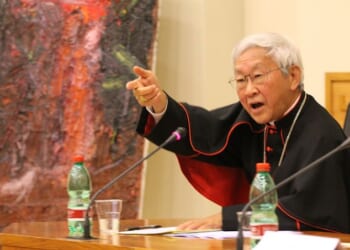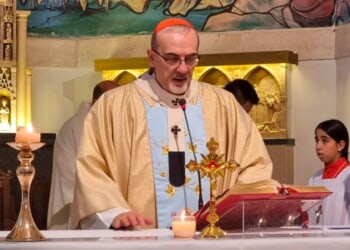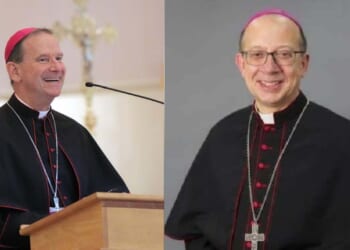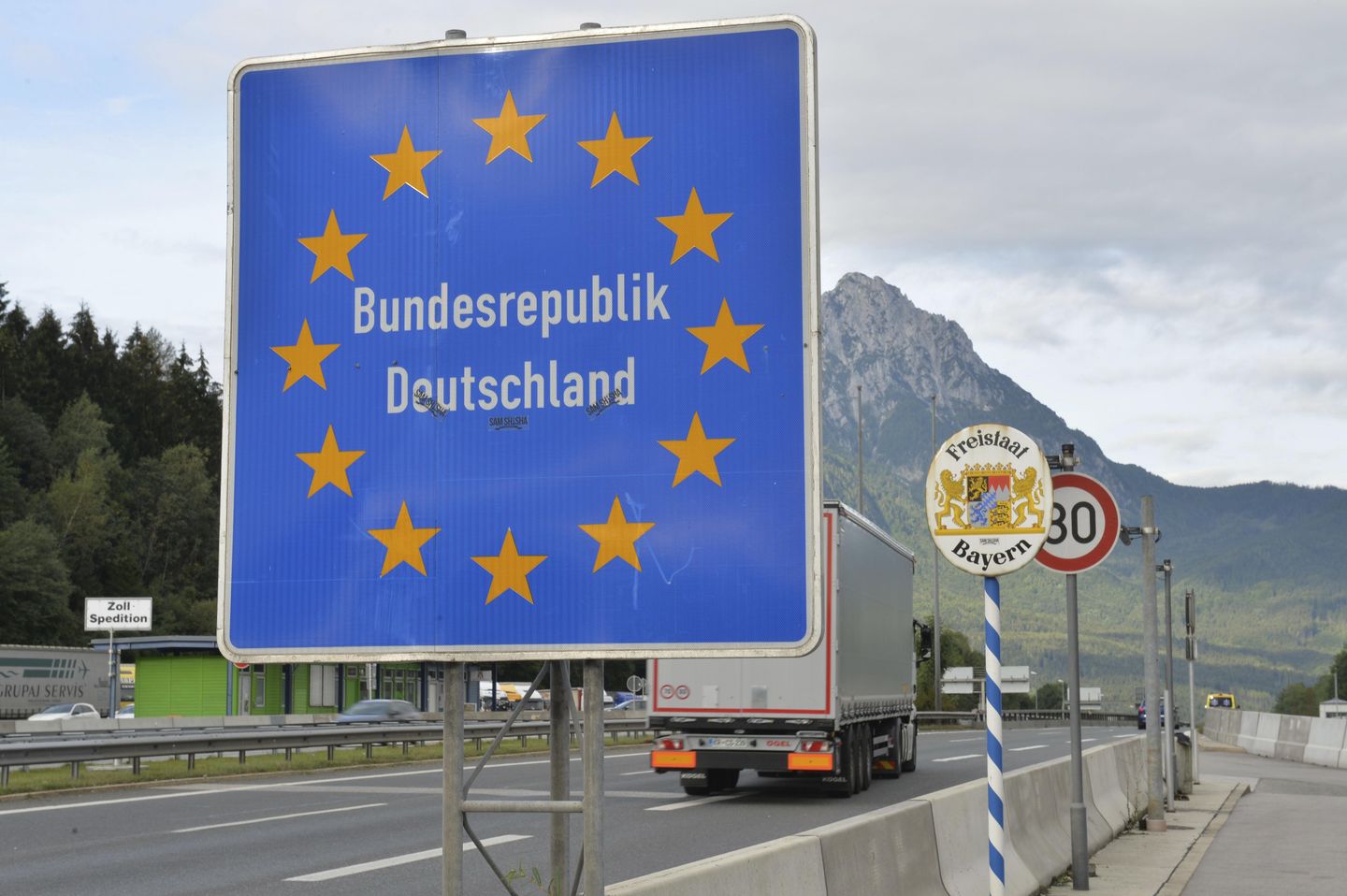
LONDON — A brutal August knife attack on an American who stepped in to defend young women from harassment on a train in Dresden, Germany, has reignited a fiery debate over immigration policies that increasingly have become the focus of national elections.
John Rudat, a part-time model, was slashed across the face in an attack that is expected to leave him permanently disfigured. A person briefly detained in the case is a Syrian refugee, but officials have not arrested or identified any suspected assailant.
The attack follows other high-profile crimes this year and in years past involving migrants who have flocked to Germany to take advantage of the country’s immigration-friendly policies.
Ten years after Chancellor Angela Merkel flung open Germany’s borders to refugees from war-torn nations, the issue continues to define German politics, reshaping the political landscape and challenging the national security of Europe’s largest economy.
“We can do this,” Ms. Merkel declared on Aug. 31, 2015, as tens of thousands of illegal migrants made their way across the Balkans toward Germany.
Under the European Union regulations at the time, arriving refugees should have been sent back to the first EU country they entered.
Ms. Merkel allowed them to stay in Germany.
From 2015 through 2017, an estimated 1.5 million refugees arrived in Germany, primarily from Afghanistan, Iraq and Syria.
A decade after Ms. Merkel decided to keep the border with Austria open, more than 700,000 Syrians still live in Germany, according to the latest EU statistics. Only a few thousand have returned to their home country since the fall of the Assad regime in December.
The right-wing Alternative for Germany stormed into the Bundestag in 2017 on a wave of anger over Ms. Merkel’s refugee stance. Earlier this year, the party finished second in national polling for the first time.
Changes in German law have made thousands of Syrian refugees eligible for citizenship. The Federal Statistics Office said 291,955 people were granted German citizenship last year, a 46% increase from 2023. Syrians made up the largest share, with 83,150 newly naturalized.
For the center-left Christian Democratic Union, the country’s ruling party, these new Germans are potential voters.
“Immigrants sometimes think the CDU is less attractive for them; in fact, the party has many members from immigrant backgrounds,” said Efe Karanis, a Turkish-German activist with the CDU.
Mr. Karanis noted that even at the highest levels, the CDU includes leaders with migrant roots, though he acknowledged that the “Christian” in the party’s name can be a difficult sell to Muslim communities.
While working to broaden its appeal, the CDU says the party is committed to curbing illegal migration. It won 28.5% of the vote in February’s elections and entered a coalition with the left-wing Social Democratic Party rather than allow the AfD into government.
The AfD, riding a wave of outrage over immigration, captured 20.8%, its best result to date. Polls now show the party edging ahead of the CDU in popularity.
Chancellor Friedrich Merz, accordingly, has embraced a harder line on migrants.
The government is pressing ahead with a planned deportation facility at Munich airport capable of removing up to 35,000 illegal migrants per year, up from just 300 currently. The center is scheduled to open in 2027.
The Bundestag voted last week to end a fast-track to citizenship program for talented migrants. Laws limiting family reunification went into effect this summer.
Despite objections from the United Nations, Germany began deporting Afghan nationals convicted of crimes in August.
This year, the government has launched legal proceedings to deport some 3,500 Syrians convicted of crimes. Fewer than 2,000 refugees in Germany have signed up for a government-funded program to allow them to return to Syria.
“Open borders are not a form of social progress; they are a moral crime. Donald Trump has recognized that quite accurately,” AfD lawmaker Beatrix von Storch said.
Political violence has risen sharply across the spectrum over the past decade. Far-right extremists have been linked to attacks on migrants, and left-wing terrorism is also on the rise. Asylum-seekers from Syria and Afghanistan have been tied to domestic terrorist incidents in Germany.
In February, a 19-year-old Syrian asylum-seeker stabbed a Spanish tourist at the Holocaust Memorial in Berlin in an antisemitic attack that stunned the country.
Dresden has been no stranger to this violence. A Syrian asylum-seeker attacked a gay couple there in 2020, fatally stabbing one. The European Union classified the incident as terrorism.
“It’s very simple,” Ms. von Storch said. “If you bring millions of people into your country from regions plagued by violence, civil war, and archaic customs, then it’s inevitable you also import the violence of those countries.”
Despite his ordeal, Mr. Rudat has not turned his back on Germany. He studied there before beginning EMT training and says he feels at home. He does not want recognition or honors. What he really wants, he said, is German citizenship.

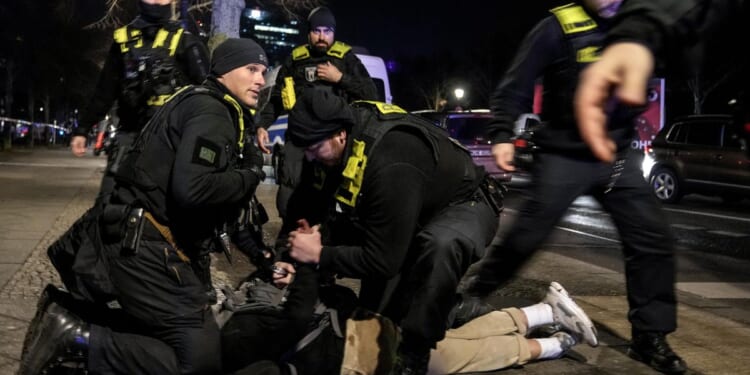






![Florida Officer Shot Twice in the Face During Service Call; Suspect Killed [WATCH]](https://www.right2024.com/wp-content/uploads/2025/12/Inmate-Escapes-Atlanta-Hospital-After-Suicide-Attempt-Steals-SUV-Handgun-350x250.jpg)




